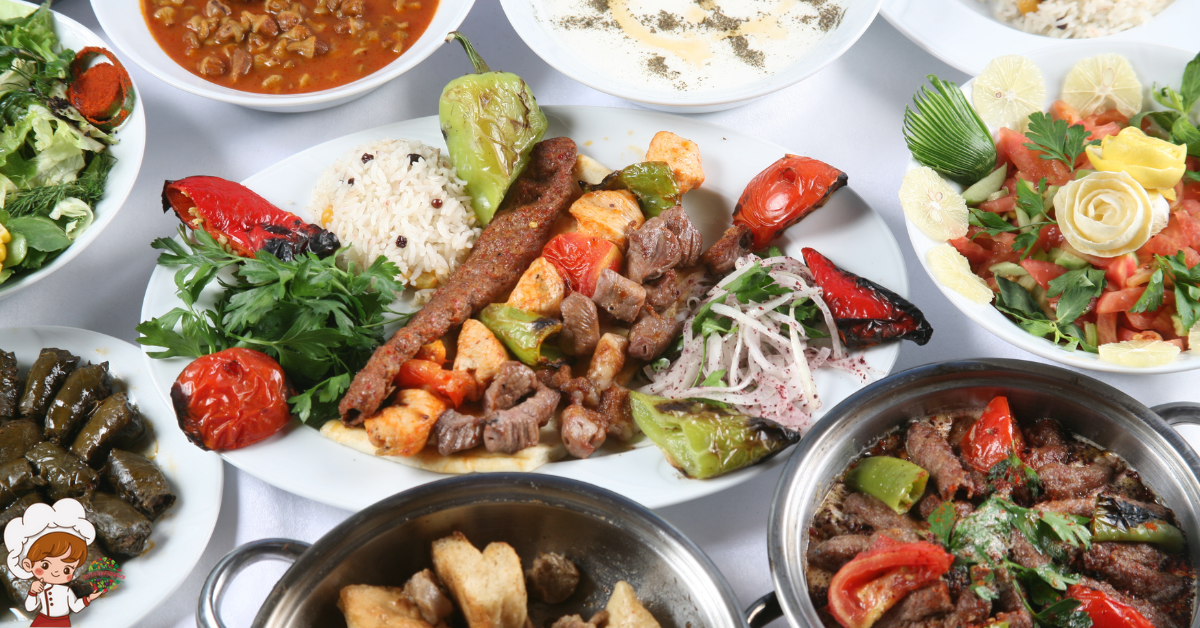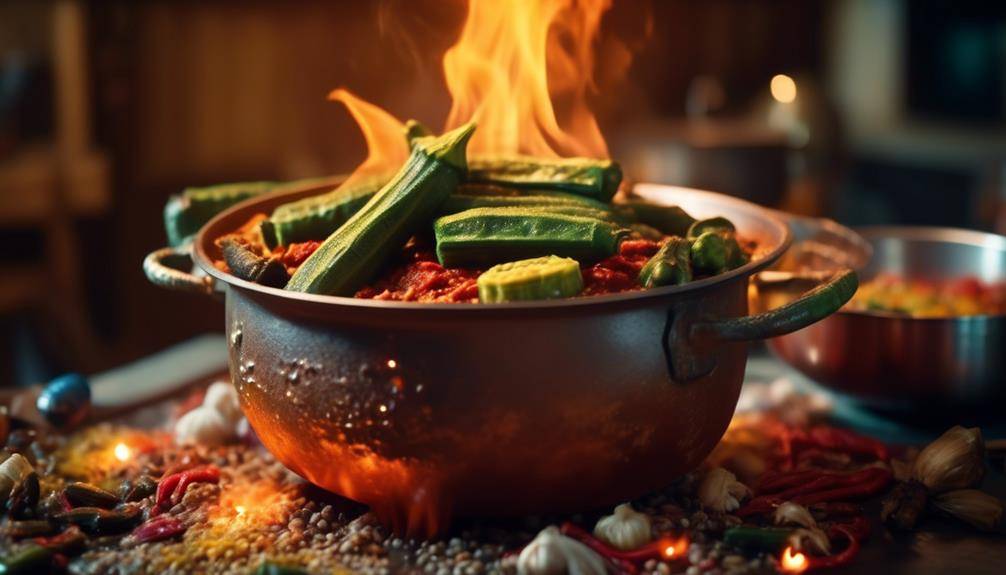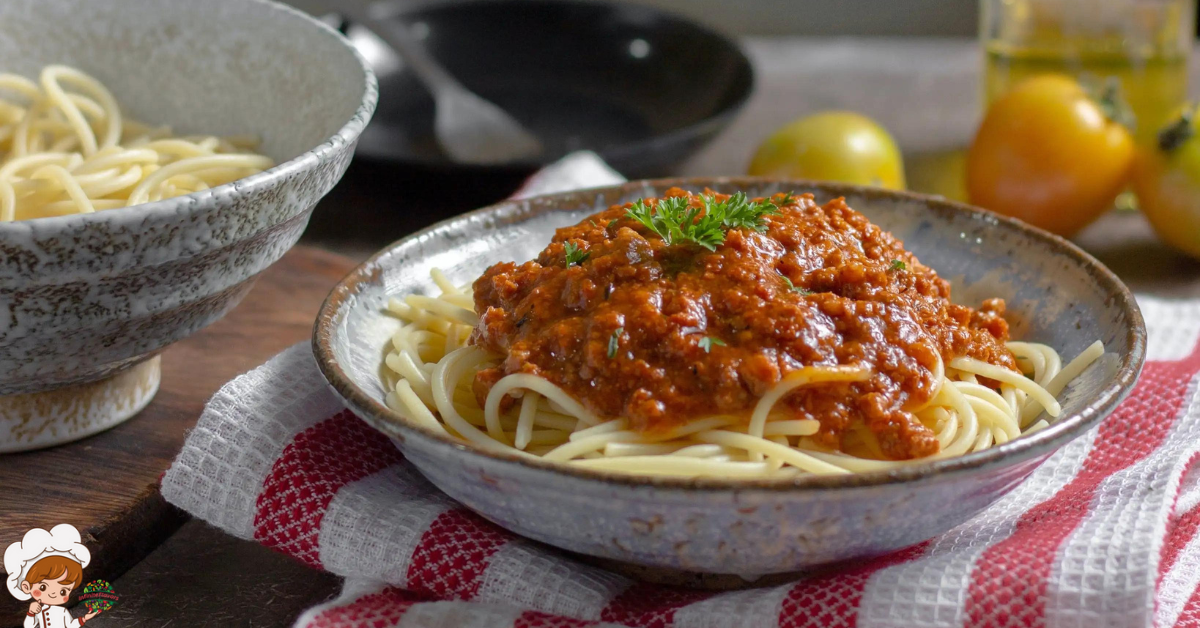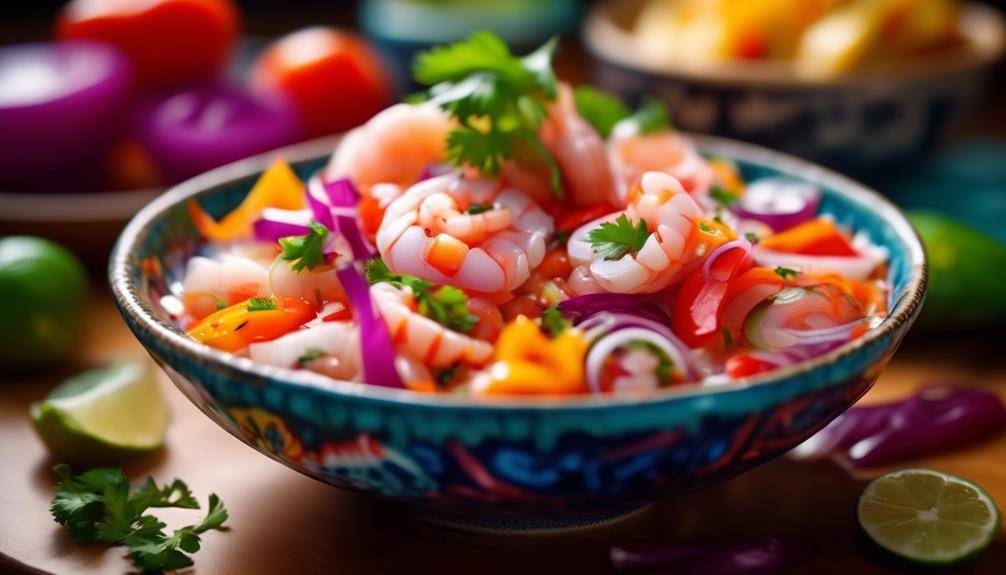Popular Traditional Russian Dishes For Dinner
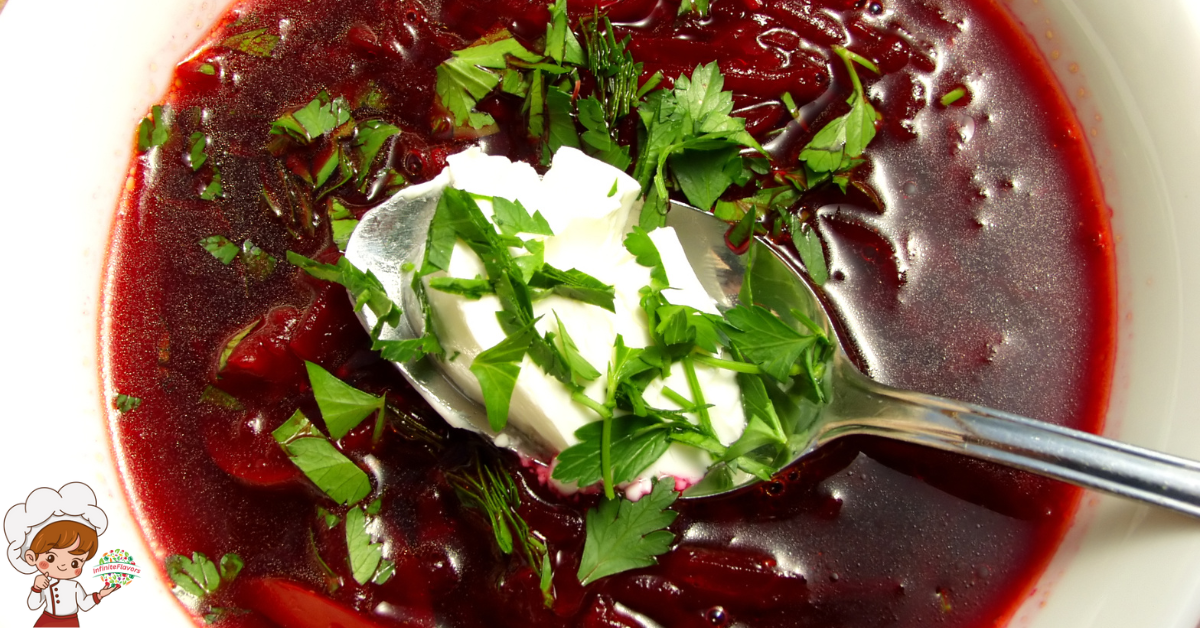
Traditional Russian Dishes For Dinner; Are you tired of the same old dinner options, craving something bold and exotic to tantalize your taste buds? Look no further, because traditional Russian dishes are here to rescue you from your culinary rut. Picture this: a steaming bowl of borscht, bursting with vibrant colors and flavors, promising to warm you from the inside out. But that’s just the beginning.
From savory dumplings to thin pancakes topped with an array of delicious fillings, Russian cuisine offers a feast fit for a tsar. So, why settle for the ordinary when you can embark on a gastronomic adventure through the vast land of Russia? Get ready to savor the flavors and uncover the secrets of these mouthwatering dishes.
Borscht: A Hearty Beet Soup
Borscht, a beloved traditional Russian dish, is a hearty beet soup that has been enjoyed for centuries. This iconic soup is known for its vibrant color, rich flavor, and multitude of variations. The cultural significance of borscht cannot be overstated, as it has become a symbol of Russian cuisine and heritage.
One of the remarkable aspects of borscht is the wide range of beet soup variations that exist. While the basic foundation of borscht remains the same – a soup made primarily with beets – the specific ingredients and techniques can vary greatly from region to region. Some variations include the addition of cabbage, potatoes, carrots, onions, and tomatoes, which all contribute to the unique flavor profile of each version. The use of sour cream as a garnish is also a common practice, providing a creamy and tangy contrast to the earthy flavors of the soup.
The cultural significance of borscht stems from its long history and association with Russian cuisine. It has been a staple in Russian households for generations, passed down through family recipes and traditions. Borscht is often featured in celebrations and special occasions, symbolizing unity, abundance, and hospitality. Its deep red color is also a nod to the beauty and resilience of the Russian people.
In addition to its cultural importance, borscht has gained international recognition and popularity. It has become a staple in Eastern European cuisine and has made its way onto menus around the world. The hearty and comforting nature of borscht appeals to a wide range of palates, making it a beloved dish for both Russians and non-Russians alike.
Pelmeni: Russia’s Savory Dumplings
Pelmeni, known as Russia’s savory dumplings, have a long-standing history and are a beloved staple of Russian cuisine. These small, bite-sized dumplings are made from a simple dough of flour, water, and sometimes eggs, filled with a variety of ingredients, and then boiled until tender. The beauty of pelmeni lies in their versatility and the endless variations they come in. Here are some popular pelmeni variations:
- Meat Pelmeni:
- The most traditional and widely loved type of pelmeni is filled with a mixture of ground meat, usually a combination of beef and pork. The meat is seasoned with salt, pepper, and sometimes onions or garlic, giving the dumplings a rich and savory flavor.
- Another popular variation is Siberian pelmeni, which is made with a filling of game meat such as venison or elk. These dumplings have a slightly gamey taste and are often served with a tangy cranberry sauce.
- Potato Pelmeni:
- For a vegetarian option, potato pelmeni are a delicious choice. The filling is made by mashing cooked potatoes and mixing them with sautéed onions, herbs, and spices. These dumplings have a smooth and creamy texture, and their mild flavor pairs well with a variety of sauces.
Pelmeni are typically served with a dollop of sour cream, which adds a creamy richness to the dish. They can also be drizzled with melted butter and sprinkled with fresh herbs, such as dill or parsley, for added flavor. Some popular accompaniments for pelmeni include pickles, sauerkraut, or a side of Russian-style salad.
Pelmeni’s origins can be traced back to Siberia, where they were traditionally made by hand and then frozen for long winters. Today, they are a beloved dish enjoyed throughout Russia and beyond. Whether you prefer the classic meat-filled version or opt for a vegetarian alternative, pelmeni are sure to delight your taste buds with their comforting flavors and rich history.
Blini: Thin Pancakes With Endless Toppings
Get ready to explore the world of Blini, the thin pancakes that have been a staple in Russian cuisine for centuries. From sweet to savory, the toppings for Blini are endless, allowing for a wide variety of flavors and combinations. Traditional fillings include caviar, smoked salmon, sour cream, and mushrooms, but you can also experiment with modern twists like Nutella, fresh fruits, or even ice cream. So, whether you prefer a classic approach or want to get creative, Blini offers a versatile and delicious culinary experience.
Toppings for Blini
When it comes to topping your blini, the possibilities are endless, allowing you to create a truly personalized culinary experience. Whether you prefer sweet or savory, there are a multitude of options to satisfy your taste buds.
For those with a sweet tooth, consider topping your blini with a dollop of whipped cream and a sprinkle of powdered sugar. You can also try spreading a layer of Nutella or fruit jam for a burst of flavor.
If you prefer savory toppings, explore the world of creative blini fillings. Wrap your blini around smoked salmon and cream cheese for a classic combination, or try a savory twist with sautéed mushrooms and melted cheese. For a more indulgent option, top your blini with caviar and sour cream, a traditional delicacy in Russian cuisine.
No matter your preference, the toppings you choose for your blini will elevate this humble dish to new heights of deliciousness.
Traditional Blini Fillings
To truly appreciate the rich history and cultural significance of traditional Russian blini, it is essential to explore the wide array of fillings that have been enjoyed for centuries. Traditional blini recipes offer a variety of sweet fillings that are sure to tantalize your taste buds. One popular sweet filling is a classic combination of sour cream and jam. The tanginess of the sour cream perfectly complements the sweetness of the jam, creating a harmonious flavor profile.
Another delightful sweet filling is made with fresh berries, such as strawberries or blueberries, mixed with a touch of sugar. The natural sweetness of the berries shines through, creating a refreshing and light filling. For those with a sweet tooth, a simple yet delicious option is Nutella, a creamy chocolate-hazelnut spread. The rich and indulgent flavor of Nutella pairs beautifully with the delicate blini. These sweet fillings not only add a burst of flavor, but also highlight the versatility of traditional Russian blini.
Serving Suggestions for Blini
Now that you have explored the traditional fillings for Russian blini, let’s dive into the diverse and endless serving suggestions that accompany these thin pancakes. Blini can be served in a variety of ways, allowing you to experiment with both sweet and savory options. Here are some serving ideas to elevate your blini experience:
- Sweet options:
- Fresh berries and whipped cream: Top your blini with a medley of juicy berries and a dollop of fluffy whipped cream for a delightful burst of sweetness.
- Nutella and banana: Spread a layer of creamy Nutella on your blini and add slices of ripe banana for a decadent treat.
- Savory options:
- Smoked salmon and cream cheese: Roll up your blini with succulent smoked salmon and a generous smear of creamy cream cheese for a classic combination.
- Caviar and sour cream: Indulge in the luxurious pairing of delicate caviar and tangy sour cream, creating a truly exquisite flavor profile.
These serving suggestions will take your blini to new heights, offering a range of flavors for every palate. Whether you prefer something sweet or savory, blini is a versatile dish that can be enjoyed in countless ways.
Beef Stroganoff: A Creamy Delight
Now let’s explore the origins and history of Beef Stroganoff, a beloved Russian dish that has stood the test of time. This creamy delight, traditionally made with strips of tender beef, mushrooms, onions, and a rich sour cream sauce, has its roots in 19th-century Russia. Created by French chef Charles Brière, Beef Stroganoff quickly gained popularity among Russian aristocrats and eventually spread throughout the world, becoming a staple in many international cuisines. Understanding the ingredients and preparation methods will allow you to truly appreciate the timeless appeal of this classic dish.
Origin and History
Beef Stroganoff, a creamy and delectable dish, holds a rich history and an intriguing origin story in traditional Russian cuisine. Its roots can be traced back to 19th-century Russia, where it was created by French chef Charles Brière, who served the Stroganoff family. This culinary masterpiece gained popularity among the Russian elite due to its luxurious ingredients and exquisite flavors.
The cultural significance of traditional Russian cuisine lies in its ability to reflect the diverse influences that have shaped Russian history. From the Mongol invasion to the reign of Catherine the Great, Russian cuisine has been influenced by various cultures and traditions. Beef Stroganoff, with its tender strips of beef, velvety sauce, and tangy sour cream, encapsulates this fusion of flavors. It represents the elegance and sophistication of Russian aristocracy while also showcasing the influence of French culinary techniques. Today, Beef Stroganoff continues to be a beloved dish, not only in Russia but also around the world, symbolizing the rich cultural heritage of traditional Russian cuisine.
Ingredients and Preparation
Continuing our exploration of the captivating history of Beef Stroganoff, let’s now delve into the meticulous process of selecting the finest ingredients and preparing this creamy delight. To create the perfect Beef Stroganoff, it is crucial to start with high-quality ingredients. The star of the dish is, of course, the beef. Choose tender cuts like filet mignon or sirloin, thinly sliced and seasoned with salt and pepper. For the sauce, you will need onions, mushrooms, and a combination of beef broth, Dijon mustard, and sour cream.
As for cooking techniques, it is essential to cook the beef quickly over high heat to retain its tenderness. Sauté the onions and mushrooms separately, then combine everything, letting the flavors meld together. Serve the Beef Stroganoff over a bed of buttered noodles or fluffy rice, and enjoy the rich and creamy taste that has made this dish a classic in Russian cuisine.
Shashlik: Grilled Skewered Meat
Shashlik, a traditional Russian dish, is a flavorful and succulent grilled skewered meat that has a rich history and cultural significance. This dish has been enjoyed by generations and is often prepared during festive occasions and gatherings. The art of making shashlik involves marinating chunks of meat, usually lamb or pork, in a flavorful mixture before grilling them to perfection over open flames.
To create the perfect shashlik, Russian cooks have developed a variety of grilled meat recipes and marinades that add depth and complexity to the dish. The marinades for shashlik are usually made with a combination of ingredients such as vinegar, oil, onions, garlic, and a blend of spices like paprika, cumin, and coriander. These marinades not only tenderize the meat but also infuse it with a delightful combination of flavors.
As you savor a mouthful of shashlik, imagine the juicy chunks of meat, coated in a tangy and aromatic marinade, slowly caramelizing over the open flames. The meat becomes tender and succulent, with hints of smokiness and charred edges adding to its irresistible appeal. The aroma of the grilling meat wafts through the air, enticing everyone nearby and creating a sense of anticipation.
The tradition of grilling skewered meat, known as shashlik, dates back centuries in Russia. It is believed to have originated from the nomadic tribes of Central Asia, who introduced the method of skewering meat and cooking it over an open fire. Over time, it became an integral part of Russian cuisine, with each region adding its own unique twist to the dish.
Shashlik represents more than just a meal; it is a symbol of camaraderie, celebration, and the joy of coming together. Whether enjoyed in a cozy backyard gathering or at a bustling street fair, this traditional Russian dish continues to bring people together, bridging the gap between the past and the present, and preserving the cultural heritage of Russia.
Olivier Salad: A Russian Staple
Olivier Salad, a beloved Russian staple, is a hearty and flavorful dish that has stood the test of time, captivating taste buds and becoming an integral part of Russian culinary traditions. This salad, also known as “Russian Salad,” was created in the 1860s by Lucien Olivier, a French chef who worked in Moscow. Since then, it has remained a popular dish in Russia, especially during festive occasions.
Olivier Salad has many variations, but the traditional recipe consists of boiled potatoes, carrots, peas, pickles, and boiled eggs, all finely chopped and mixed together. Some variations include the addition of cooked chicken or ham. The beauty of this dish lies in its versatility, as you can adapt it to suit your taste preferences or dietary restrictions.
When it comes to dressing, there are several options for Olivier Salad. The classic dressing is made with mayonnaise, which adds a creamy and tangy flavor to the dish. However, you can also use sour cream or a combination of both, depending on your preference. Some people like to add a touch of mustard or vinegar to enhance the flavors.
Over the years, Olivier Salad has become a symbol of Russian cuisine and culture. It is often served during holidays and celebrations, and every family has their own cherished recipe. This dish not only satisfies your hunger but also brings people together, as it is often enjoyed as a shared appetizer or side dish.
Pirozhki: Delicious Stuffed Pastries
Are you ready to delve into the world of mouthwatering Russian cuisine with the delectable and irresistible Pirozhki: Delicious Stuffed Pastries? These delightful pastries have been a beloved part of Russian cuisine for centuries, known for their flaky exterior and mouthwatering fillings. Let’s explore the various pirozhki variations and popular fillings that make them so enticing.
Picture yourself biting into a warm pirozhki, with its golden crust giving way to a burst of savory goodness. The aroma of freshly baked dough fills the air, enticing your taste buds before you even take your first bite. As you sink your teeth into the pastry, you discover a world of flavors and textures within.
Pirozhki come in various shapes and sizes, ranging from small bite-sized treats to larger, meal-sized pastries. They can be baked or fried, with each cooking method offering a unique taste and texture. The fillings can be as diverse as the Russian landscape itself, with options including meat, fish, vegetables, cheese, and even sweet fillings like fruit preserves or sweet cheese.
Popular pirozhki fillings include ground beef or pork, mixed with onions and spices, creating a savory combination that is both comforting and satisfying. For seafood lovers, pirozhki filled with salmon or white fish are a delicious treat. Vegetarians can enjoy pirozhki filled with mushrooms, cabbage, or potatoes, offering a hearty and flavorful option.
Throughout history, pirozhki have been a staple in Russian cuisine, enjoyed by people from all walks of life. Whether as a street food snack or a part of a celebratory feast, these stuffed pastries have remained a favorite among Russians and visitors alike. So, why not indulge in the irresistible allure of pirozhki and experience the rich flavors and traditions they bring to the table?
Traditional Russian Dishes For Dinner; Frequently Asked Questions
What Is the History of Borscht and How Did It Become a Popular Traditional Russian Dish?
Borscht’s history is a fascinating journey through time, revealing its evolution and influences. Discover how this hearty soup became a staple in Russian cuisine, captivating palates with its rich flavors and vibrant colors.
Can Pelmeni Be Made With Vegetarian Fillings, or Are They Always Meat-Based?
You can definitely make vegetarian pelmeni! Get creative with fillings like mushrooms, potatoes, or cheese. While traditionally meat-based, modern variations offer delicious options for those with dietary restrictions or preferences.
Are Blini Only Served as a Breakfast or Dessert Dish, or Are They Also Eaten for Dinner in Russia?
Blini, a traditional Russian dish, can be enjoyed for dinner as well as breakfast or dessert. They are versatile and can be filled with various ingredients, such as caviar or smoked salmon, making them a delicious option for a traditional Russian dinner.
What Are Some Variations or Regional Adaptations of Beef Stroganoff in Russia?
Regional variations of beef stroganoff in Russia include using different cuts of beef, adding mushrooms or onions, and using various spices. Traditional ingredients for this dish include sour cream, mustard, and beef broth.
Is Shashlik Typically Made With a Specific Type of Meat, or Can It Be Made With Various Types of Meat and Poultry?
Shashlik can be made with various types of meat and poultry, giving you a wide range of options to choose from. However, it is traditionally made with lamb or pork, which adds a unique flavor to the dish.
Conclusion
In conclusion, traditional Russian dishes for dinner offer a rich and diverse culinary experience. Borscht, with its hearty beet soup base, showcases the flavors of the region. Pelmeni, savory dumplings filled with various meats, reflect Russia’s love for comfort food. Blini, thin pancakes with endless toppings, have been enjoyed for centuries. Beef Stroganoff, a creamy delight, is a testament to the country’s love for indulgence. Shashlik, grilled skewered meat, highlights the influence of Central Asian cuisine. Olivier Salad, a Russian staple, adds a refreshing touch to any meal. Lastly, Pirozhki, delicious stuffed pastries, are a treat for both the taste buds and the soul.



